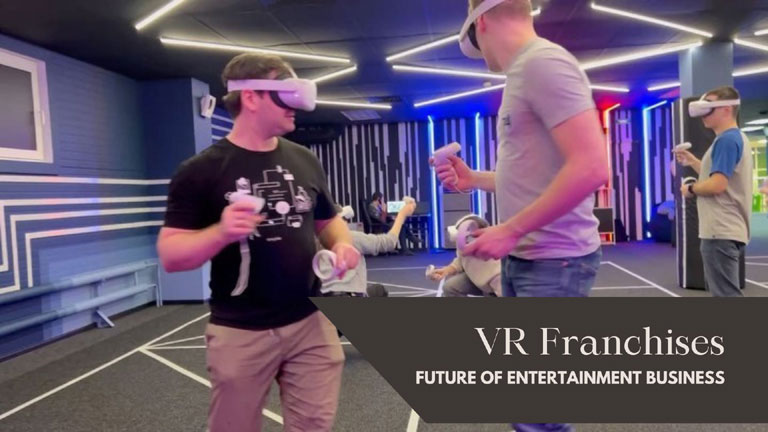
The virtual reality (VR) market is currently growing rapidly. The global VR market size was estimated at billions of dollars in 2024, and rapid growth is expected in the coming years. The market for location-based VR or VR arcades is also growing, indicating that people are willing to pay for immersive experiences not only at home but also outdoors. These trends present opportunities for new entrepreneurs looking to open VR clubs or VR franchises.
Virtual reality is no longer just technology. It is transforming the way people play, socialize, and escape. When you create experiences that put your customer at the center of the story, connections are deepened. From an investment perspective, a VR club franchise is an option that combines branding, content, and location-based services. This is why many investors and entertainment industry players are focusing on VR.
Why VR Franchises Are Game-Changers
Customer expectations are changing along with technology. Compared to traditional movies or arcades, VR makes the viewer an active participant. The result is increased customer loyalty and repeat visits. The franchise model offers a ready-made business model, training, and marketing support. Whether in small towns or large malls, a scalable model is crucial for the success of a well-organized VR club. Investors can leverage the franchisor’s experience and content licensing to mitigate risk.
Global Reach and Universe
The appeal of VR experiences is universal. People across cultures seek new ways to connect. Many companies are now expanding internationally and tailoring experiences to local markets. Location-based entertainment venues like malls and tourist hubs are ideal locations for VR clubs. Similarly, VR clubs offer growing opportunities for corporate team-building and events.
Practical Benefits of Opening a VR Club
A well-organized franchise offers the following advantages: First, brand recognition, which leads to quick customer trust. Second, content updates and technical support ensure regular new experiences. Third, diverse revenue sources such as ticket sales, memberships, event bookings, and branded merchandise. Fourth, financial plans with the franchisor and easy equipment purchase options allow for risk control for a beginner.
Challenges and Ways to Overcome Them
Like any new business, VR clubs face challenges. The initial cost of equipment and the up-to-date content are key. Customer safety and hygiene are essential. To address these challenges, you can take the following steps: Explore leasing options for equipment and establish a long-term support agreement with a reputable supplier. Ensure slot-based content updates from the franchisor. Maintain a trained staff and a clean environment to improve the customer experience. An environment where family, friends, and corporate teams can comfortably visit will pay off in the long run.
Connecting with the local community and events
A successful VR business isn’t just about playing; it is about building a community. Partnering with local schools, colleges, and corporations can help you organize regular events. Birthday parties, camps, and team-building sessions are revenue boosters. Additionally, you can create unique experiences that attract audiences by providing a platform to local artists and content developers. Collecting and implementing customer experience feedback is key to long-term success.
Operational Considerations
Foot traffic, parking, and visibility are crucial when selecting a location. Set a regular budget for equipment maintenance and staff training. It’s helpful to clearly communicate safety rules and deadlines to customers. Offer a variety of pricing options—pay-per-session, subscriptions, and group packages. Build a reserve fund for technology upgrades to stay current. Trained staff guides and provides immediate support to customers to enhance the customer experience.
Future Direction and Technological Advancements
Network speeds and AI will make personalized experiences even more powerful. Devices like haptic suits and movement-tracking bring the experience closer to reality. Hardware costs are expected to gradually decrease, and content production will become cheaper and more diverse. Given these trends, investing today could yield significant returns in the future. Furthermore, mobile-based VR and cloud-streaming can add new experiences to your club.
Opportunities in Small Towns
There’s room for VR clubs in smaller cities, as well as in larger cities. Limited entertainment options and a young population create a large market. You can start with a smaller outlet and gradually expand, focusing on local branding. Content curation tailored to local culture will help ensure success.


